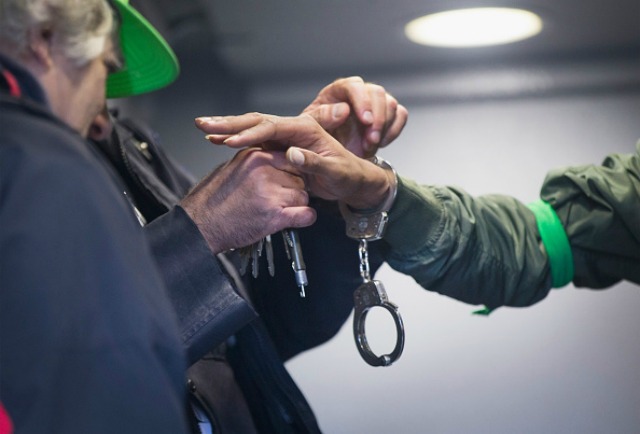People Arrested In Chicago Will Have Access To Free Attorneys At Police Stations
By Stephen Gossett in News on Mar 15, 2017 3:47PM

Getty Images / Photo: Scott Olsen / Chicago, 2015
A new program will allow people arrested in Chicago to have free access to attorneys at police stations, a Cook County Judge announced on Tuesday.
As it stands, most people arrested in Chicago remain without legal representation until their bond hearing, according to the Circuit Court of Cook County. “In the eyes of the law, everybody is innocent until proven guilty," Chief Judge Timothy C. Evans said in a statement. "Everybody deserves access to justice. They should always have the opportunity to speak with an attorney before talking to anybody else."
Under the new order, people arrested in the city can access assistant public defenders on weekdays from 8 a.m. to 4 p.m.; and volunteer attorneys from First Defense Legal Aid—which helped uncover the substantially low rates at which arrestees receive lawyer visits at police stations—will be available during the remaining off hours. Signs will also go up in CPD stations with contact information for the public defender and FDLA.
As far as funding, FDLA is counting on a combination of volunteers and additional funding partners to step forward, according to Eliza Solowiej, Executive Director of the legal aid organization. "We believe the legal community is going to step up and help," Solowiej told Chicagoist. "We do this because we have to." The organization will also recruit a third party evaluator to study how the program can be implemented on an even broader scale, beyond Cook County.
Cook County State’s Attorney Kim Foxx, whose office recently made inroads toward some bond reform, threw her support behind the measure. “The legitimacy of the justice system depends on protecting the constitutional rights of people who come in contact with it," she said in a statement. "Today’s announcement affirms the commitment of all the stakeholders in the justice system to ensuring that no one is denied their constitutional right to counsel.”